Reading Time: 6 minutes
Ruchira examines the animal healthcare scenario in the country. Though the government has taken steps, much needs to be done. An exclusive for Different Truths.
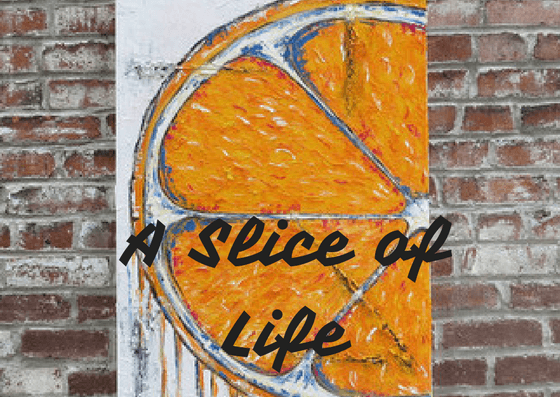
Hiya was woebegone when her pair of pet rabbits died suddenly. She was unable to figure out why. They did not show any unusual behavior. Her sense of guilt was heightened by the fact she hadn’t consulted a vet for the simple reason that she knew none.
When her pet parrot, Kiki, grew quiet even refusing her usual fare of chilis and Bengal grams, Barnali Das was alarmed. With the help of a concerned neighbour, she took the ailing bird to the Charity Birds Hospital near Old Delhi’s Chandni Chowk. Due to timely intervention Kiki survived.
Piu Nath, a Pune-based animal rights activist narrates how she often runs from pillar to post in search of medical aid for stray animals…
Piu Nath, a Pune-based animal rights activist narrates how she often runs from pillar to post in search of medical aid for stray animals, which are either sick or victims of accidents – hit and run cases and such like. Why? Because practicing vets are few and far between.
In a bustling, ‘happening’ place like Delhi-NCR, the scenario is no different. Internet search reveals that even vet clinics are concentrated in the southern neighbourhoods where ‘the Bold, Beautiful and Powerful’ live.
In majority of Indian cities and towns, one finds private vets for mostly dogs and cats.
In majority of Indian cities and towns, one finds private vets for mostly dogs and cats. Other species – birds and rabbits for instance are sidelined.In this context, Shuvo Bose, an MCA turned pet parent, from Noida says,“As of now, owning a pedigree dog has become a status symbol. Cats occupy the second rung in terms of pet options. That is why they are in focus”.
Media survey shows that there is no uniformity in the consultation charges and fees for Vets across the country. Some pet lovers from economically weaker sections (EWS) can ill-afford the charges of even government-run veterinary hospitals and clinics. Meanwhile, Vets in urban areas appear to have a field day. Even by modest estimates, monthly check-ups are likely to cost around Rs. 1000 (depending on the pet). For spaying and neutering (cats and dogs), you end up paying anything between Rs. 5,000 to Rs.10,000. For vaccinations, you may be charged Rs. 200/- per shot or more. That’s beyond the reach of the man on the street.
Adding to the woes, drugstores for pets are hard to come by.
Adding to the woes, drugstores for pets are hard to come by. Vital medicines are often out of stock in several of them. Nath and Bose have learnt it the hard way.
This is where the NGOs step in, to provide healthcare to the hapless creatures. Their service rates are pocket-friendly to say the least. Piu gladly informs how she knows of some Good Samaritan Vets, who also charge minimal rates, often treating the animals for free.
Now the focus shifted to avian (birds) medicine and laboratory animal medicine.
Coincidentally, during this write-up, I happened to bump into a seasoned Vet at a social event. Dr. Chanchal Bhattacharya, a senior veterinarian, Delhi, says that unlike in previous decades, the Veterinary Council of India has now established a uniform veterinary education in our country. Previously, the majority of veterinarians were taught to handle commonplace pets – dogs and cats, besides dairy animals. Now the focus shifted to avian (birds) medicine and laboratory animal medicine. He adds as an afterthought, “In urban areas, Vets can earn well, if they treat dogs and cats, which are plentiful. So that may be the reason.”
Animals and livestock connected with VIP households seem to fare much better in terms of healthcare and wellbeing. Dr Bhattacharya recollects, “Way back in the year 2008, when the IPL season was on, one weekend I was watching the series, when suddenly I was summoned by the SPG to treat Mrs. Sonia Gandhi’s pet dog. It was an interesting experience. At various points of time, I got a chance to treat the pets of Who’s Who like Nitish Kumar, Lalu Prasad Yadav, Arjun Singh, (late) V.P. Singh among others. Plus, I have had to regularly visit President Bodyguard Dairy farms to treat the cows”. (For the uninitiated, personnel enlisted as the President’s bodyguard collectively run a dairy farm to procure milk and dairy products).
Overall, a dismal picture no doubt. However, Dr Bhattacharya sounds optimistic. Things are beginning to look brighter. Awareness has begun to spread, he assures.
… the Government of India has implemented the National Animal Disease Control Programme (NADCP) for curbing foot and mouth disease…
For instance, the Government of India has implemented the National Animal Disease Control Programme (NADCP) for curbing foot and mouth disease and Brucellosis by total vaccination of cattle, buffalo, sheep, goats, and pigs. The former is a highly contagious ailment leading to reduction in milk yield, decreased growth rate, infertility, et al. The latter is a bacterial infection – characterised by fever, body ache – is commonly caused by consumption of unpasteurised dairy products.
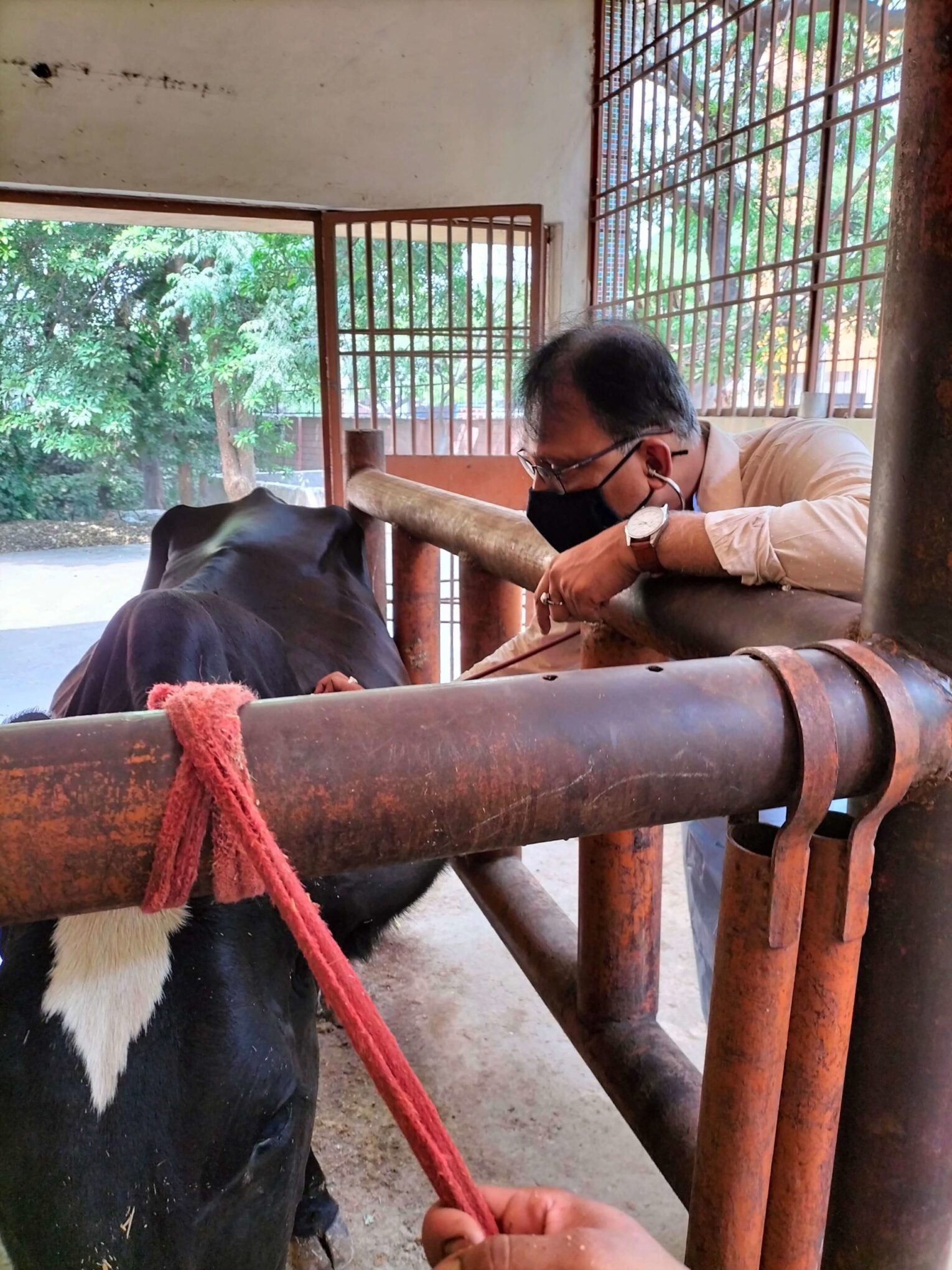
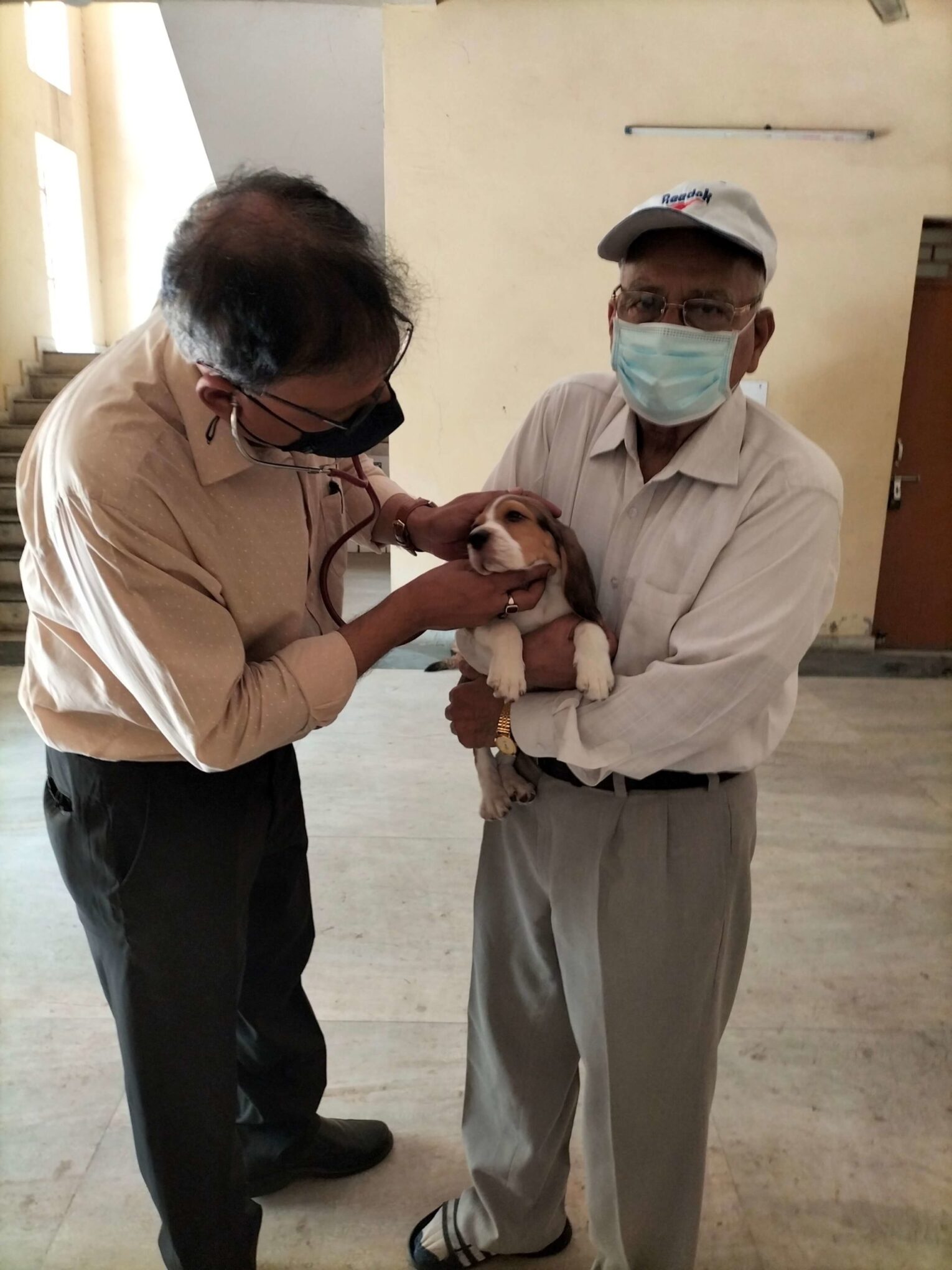
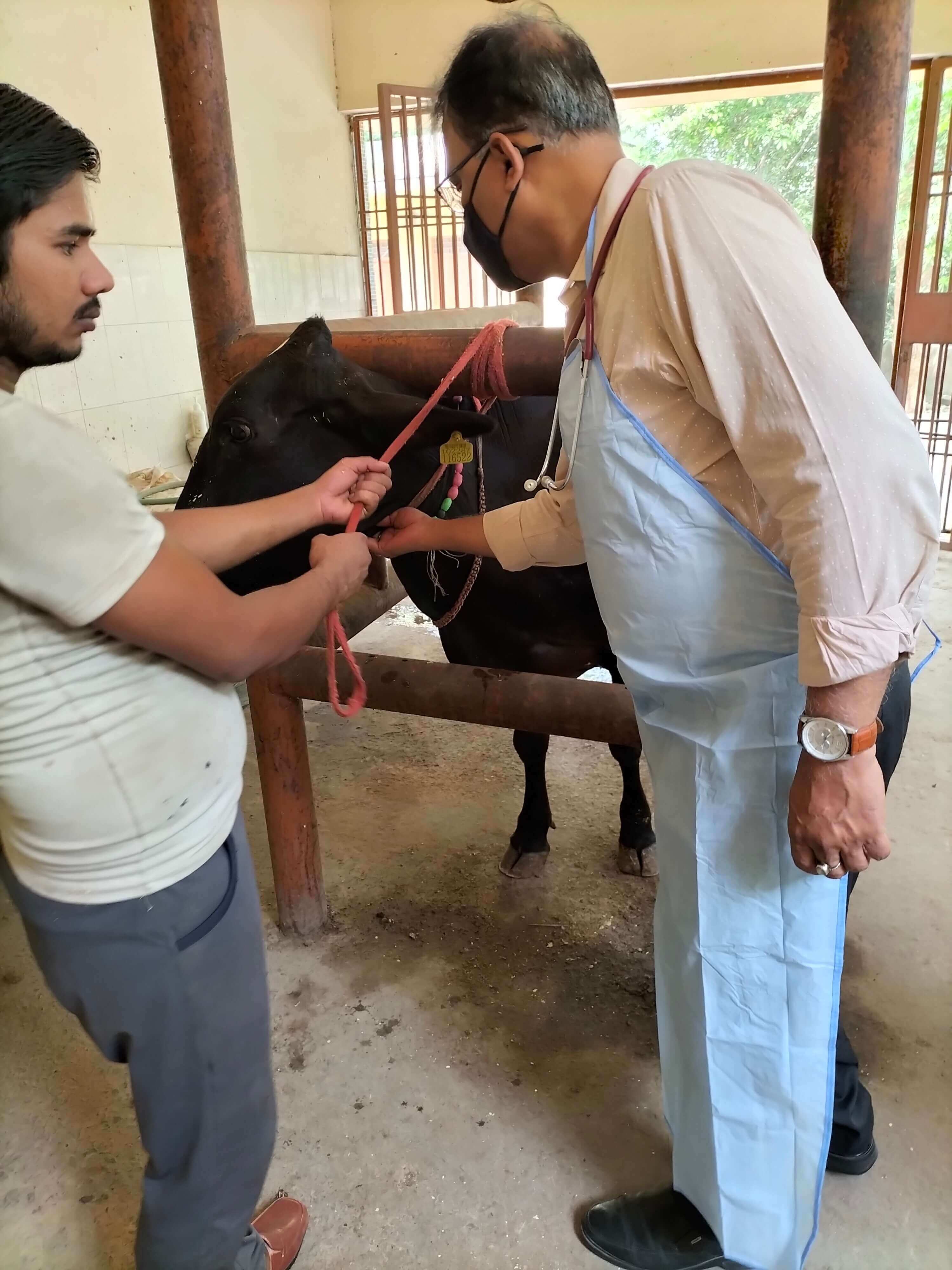
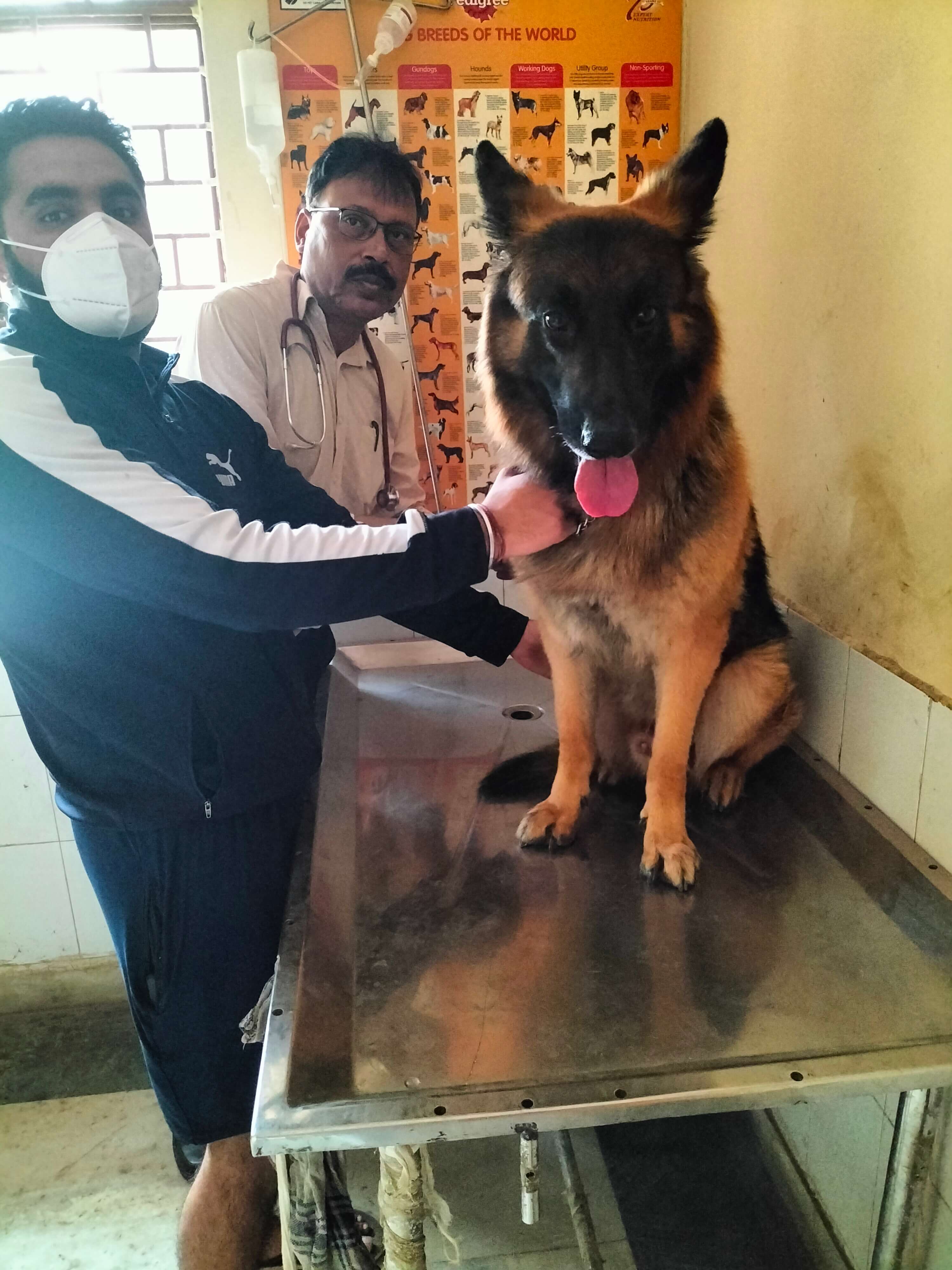
The focus is also on eradicating zoonoticdiseases. Animals occasionally carry harmful germs – viruses, bacteria, parasites, and fungi – that infect humans and cause diseases likeMalaria, Rabies Anthrax, et al. Even seemingly healthy animals may carry germs that can spread diseases.
Another laudable measure being implemented is One Health. It aims to balance and optimise the health of people, animals, and ecosystems…
Another laudable measure being implemented is OneHealth. It aims to balance and optimise the health of people, animals and ecosystems all rolled into one. It recognises the fact that the health of humans, domestic and wild animals, plants, and the wider environment are inextricably linked and inter-dependent. The project envisages ushering in overall well-being besides combating health hazards and threats to ecosystems. It highlights the collective need for clean water, energy and air, adequate nutrition, and arresting climate changes
Let us look at a huge paradox. Despite being a major rural-cum-agro-centric country involving cattle and other domestic livestock, there appears to be an overall shortage of vets. The doctor reveals that earlier on, Veterinary colleges came under the purview of Agricultural Universities. Hence only a limited number of seats were available. Not anymore. “There has been a mushrooming of Veterinary Universities in almost every state. These are fully functional, and the number of seats is on the rise. Many (recognised) private veterinary colleges are coming up in different states. The Government has pulled up its socks and is focusing on this area,” he concludes.
She rues that people would rather spend on the health of their family members than on pets.
Piu Nath disagrees. She feels more awareness needs to be created among pet-owners. “It’s pathetic to note that people often keep pets but pay scant regard to their well-being.” She rues that people would rather spend on the health of their family members than on pets. This must change, she opines.
When asked about the future of Veterinary Science as a profession in India, Dr. Bhattacharya says, “The prospects are very bright now because many MNCs and giant Indian companies are making foray into the poultry and dairy sectors. Not only that, but a full-fledged ministry also headed by a cabinet minister is working in the Animal Husbandry sector in India. Several new schemes are in the pipeline. In the case of overall animal health, the number of opportunities is increasing by the day.” This discipline will become more and more enterprising, he feels.
… the veteran Vet as well as the young animal activist are on the same page in their appeal to the pet parents…
Interestingly, the veteran Vet as well as the young animal activist are on the same page in their appeal to the pet parents or pet lovers. Here is what they have to say: Pets are family members. Shower them with love and affection; never show cruelty; pamper them instead. Constant vigil is essential. Your pet refusing to eat ought to ring an alarm bell. Hurry to procure medical aid. In return for your care and concern they will give you unconditional, unalloyed love, which is indeed a treasure given the modern-day lifestyle. Above all, a healthy pet means a healthy family.
Photos sourced by the author

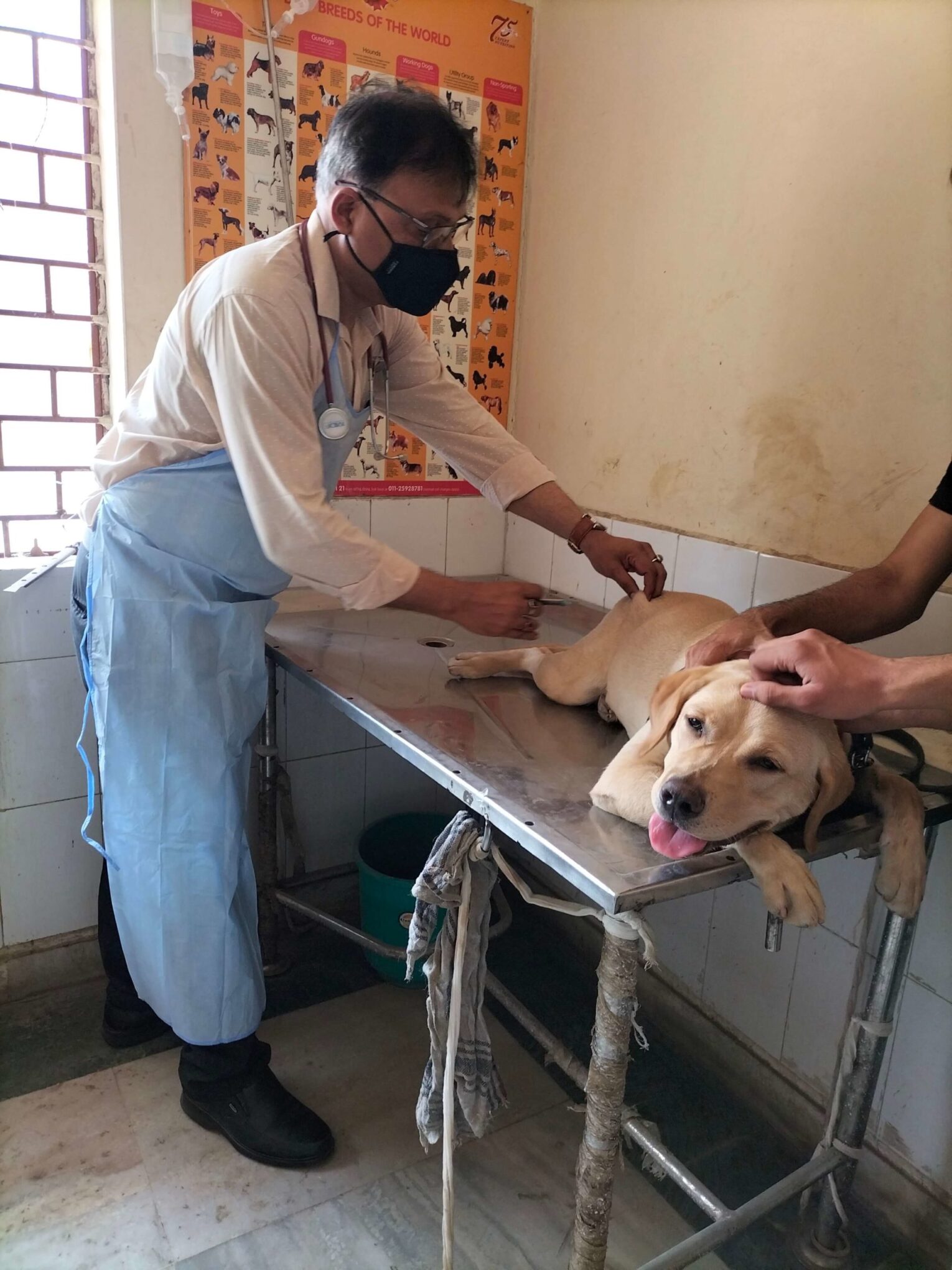
















I feel street animals should be loved more and more. They are the ones most neglected and are victims of violent hatred.
Dr. Bhattacharya must be a great doctor and above all a great human being with a loving heart. Thanks to him for being there for these stray children.